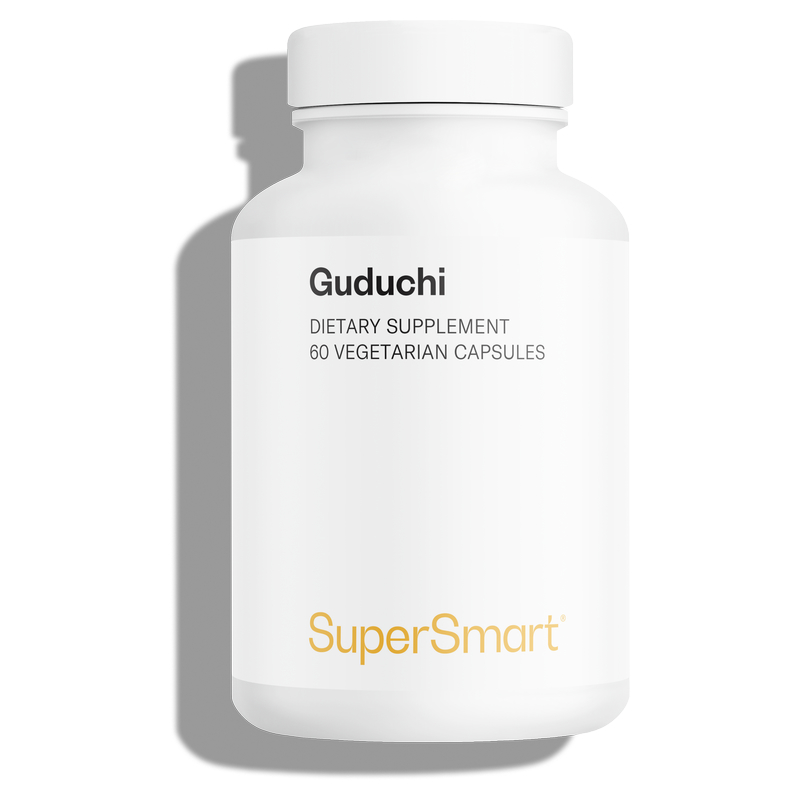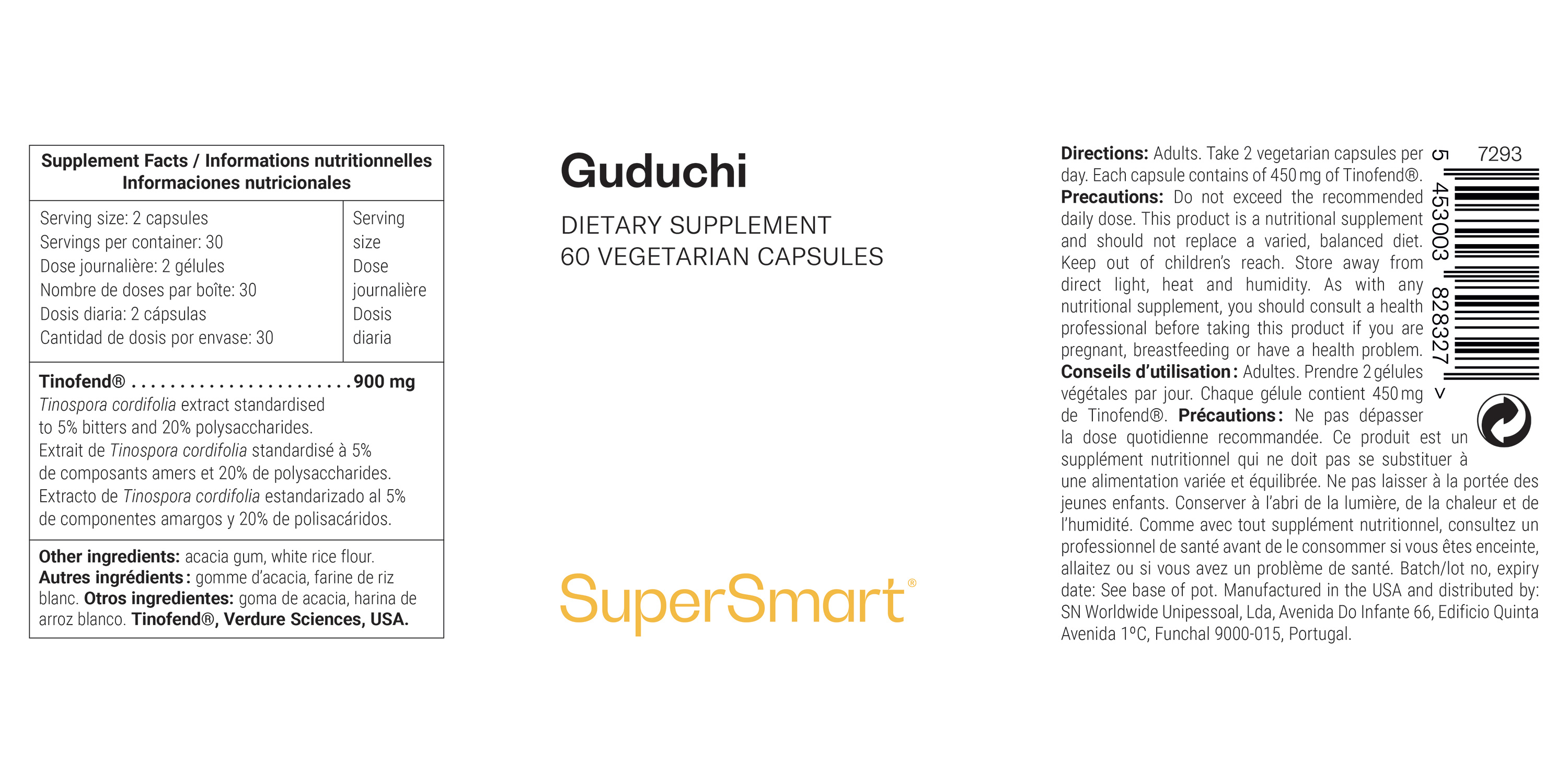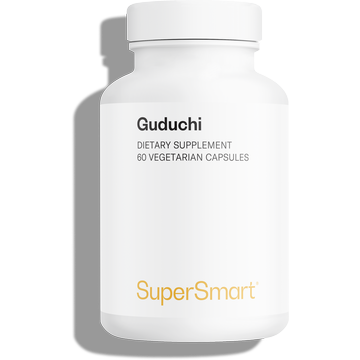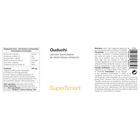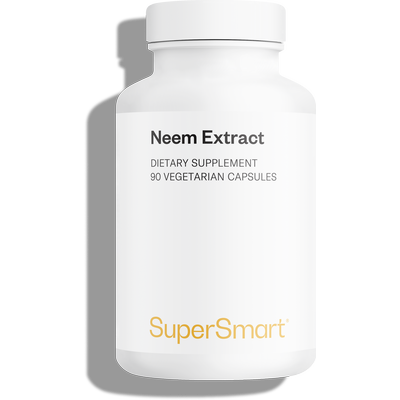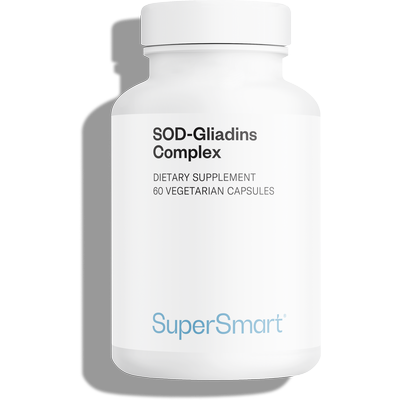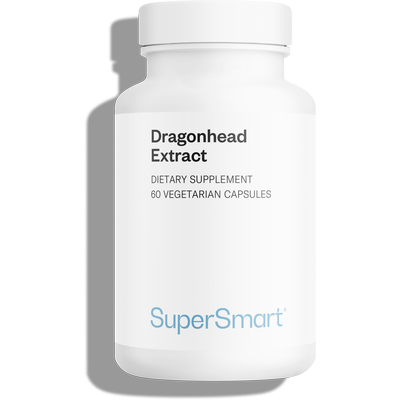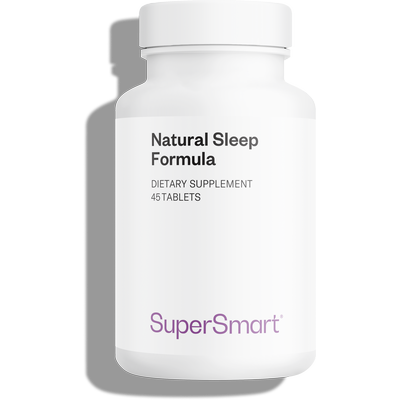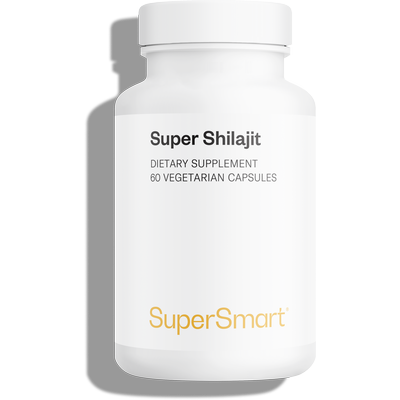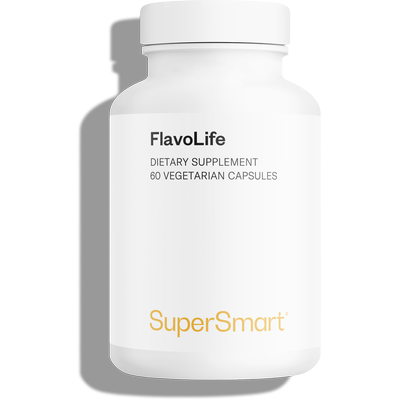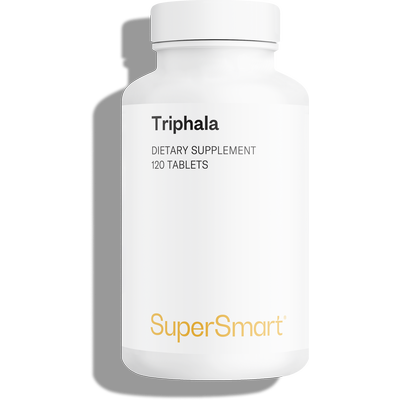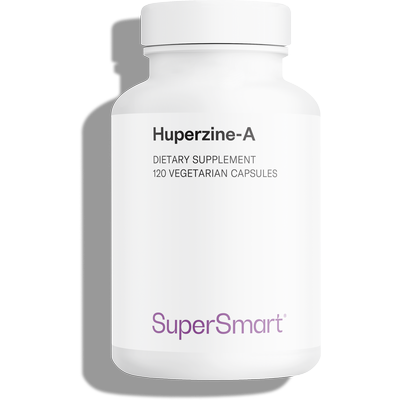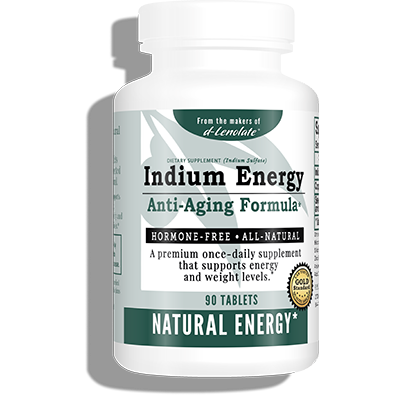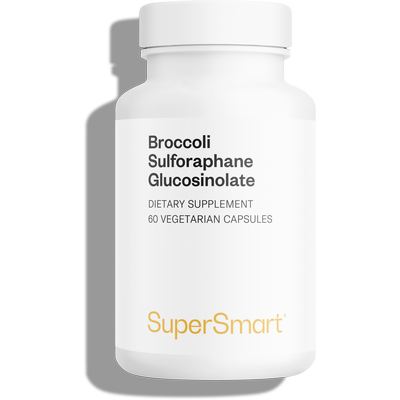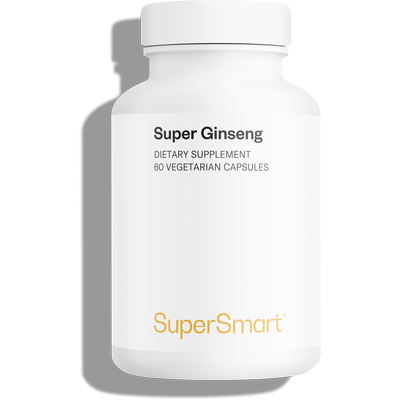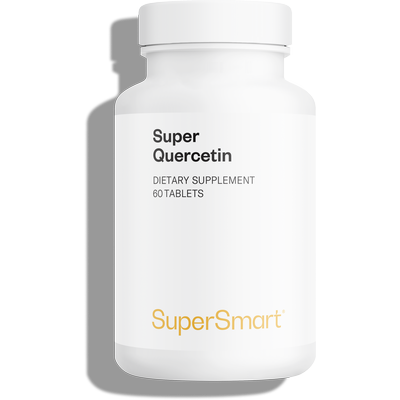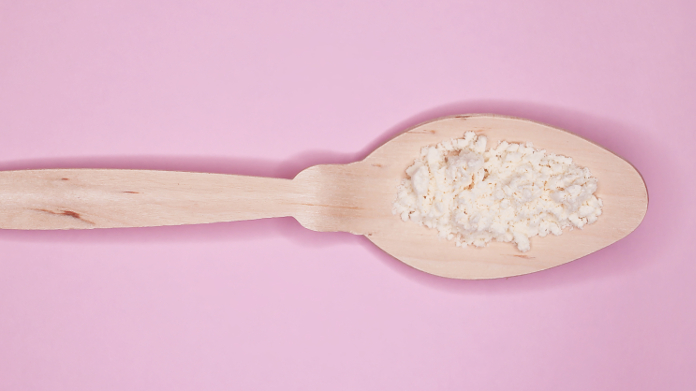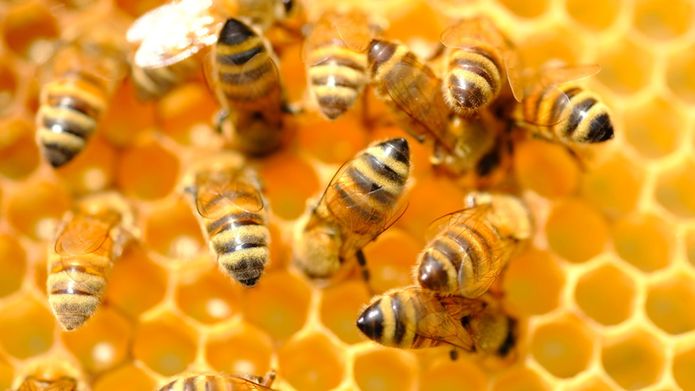Complete your selection
Guduchi is a dietary supplement containing guduchi (Tinospora cordifolia) standardised to 5% bitters and 20% polysaccharides. This climbing plant from India appears to be a real ‘panacea’ of Ayurvedic medicine because of its ability to support both immunity and liver function as well as resistance to stress through its adaptogen properties.
This supplement is part of our Immunity category.
Guduchi: appearance and Ayurvedic uses
Guduchi is a vine native to the sub-Indian continent, especially dry forests in tropical regions. Recognisable by its heart-shaped leaves, its branches twine around the small neem or mango trees that cross its path.
Though little-known in the West, guduchi is widely-revered in India where it is considered a star of the Ayurvedic pharmacopoeia. Its Sanskrit name, amrit, means ‘that which protects’ or ‘immortal’(1).
In Ayurveda, it’s normal to use the whole dried plant - stem, leaves and roots – for preparing decoctions or extracting oil. It is considered a rasayana (rejuvenating) remedy, conducive to revitalisation of the mind and body. Indian herbalists traditionally recommend it for biostimulation of the immune defences and physical and mental regeneration.
What are guduchi’s benefits for health?
Guduchi has an abundance of bioactive compounds which account for its broad spectrum of action. Amongst others, it contains alkaloids (berberine, choline ...), diterpenoid lactones, glycosides, steroids, sesquiterpenoids, phenolic compounds and polysaccharides (2).
- Guduchi and immunity. A number of studies have reported on the ability of guduchi, especially its valuable polysaccharides, to modulate the immune response through various mechanisms: activation of macrophages, regulation of interleukin secretion, and stimulation of lymphocytes (3-8).
- Guduchi and oxidation. Guduchi has strong antioxidant potency. Studies have reported its ability to trap free radicals such as superoxide anion (O2-), hydroxyl radical (OH), NO radical and peroxynitrite anion (ONOO-), excess numbers of which can threaten cellular integrity (9).
- Guduchi and blood sugar control. Together, the plant’s various active ingredients (alkaloids, flavonoids, saponins, steroids …) are thought to have a positive effect in regulating carbohydrate metabolism by reducing oxidative stress, harmonising the release of insulin and preventing the formation of new sugars (gluconeogenesis) (10-11).
- Guduchi and the liver. While the species Tinospora crispa has been described as hepatotoxic, Tinospora cordifolia is believed to be able to support liver detoxification processes. One study explored its liver-protective nature in rats contaminated with cadmium (a heavy metal) (12-13).
- Guduchi and stress. Like Indian ginseng (ashwagandha), guduchi is part of the large group of adaptogen plants, ie, those able to improve the body’s resistance to various physical, chemical or biological stressors (14). Interestingly, this botanical species displays extraordinary resilience, being able to withstand a lack of water, soil, etc.
Why choose our Guduchi supplement?
SuperSmart’s Guduchi supplement contains Tinofend®, a guduchi extract marked out by the standardisation of its active principles (5% bitters and 20% polysaccharides), which is not the case with most guduchi powders or extracts.
In addition to the above-mentioned benefits, Tinofend® was positively noted in a study on the relief of allergic symptoms (15).
What is in Guduchi
Any questions?
Our team of nutrition experts and scientists has the answers.
Our Guduchi supplement contains 450 mg of guduchi extract per capsule. To benefit from its many effects, the recommended dose is 2 capsules a day with a glass of water (a daily dose of 900mg).
Alongside your guduchi supplement, you can take a Japanese mushroom extract that’s also rich in polysaccharides (specifically proteoglycans) and has been widely studied in the field of immunology: maitake (17).
In terms of plant extracts, you can benefit from a synergy between guduchi and ginseng. This key plant of traditional Chinese medicine is known for supporting the immune system and vitality (18).
If you’re taking Guduchi more for allergy relief, you can combine it with liposomal quercetin, which many studies have suggested has potential anti-allergy (anti-inflammatory and antihistamine) effects (19-20).
According to current studies, there are no major side-effects associated with taking guduchi. When taken for extended periods, constipation may occur in those with naturally slow transit (16).
Since guduchi can affect blood glucose levels, diabetics and anyone suffering from blood sugar disorders should consult their doctor before supplementing. Guduchi supplements are not recommended for children, or for women who are pregnant or breastfeeding without medical advice.
This product’s capsules are composed of HPMC (hydroxypropyl methylcellulose), a plant substance derived from cellulose. HPMC is widely used for medicines and dietary supplements. It contains no animal ingredients, is recognised as safe by health authorities and is considered more sustainable than synthetic alternatives.
october 23 2025
Sans avis
may 6 2025
Je ne peut pas donner un avis, car je ne l'ai pas encore pris. Désolé
I cannot give an opinion because I have not taken it yet. Sorry.
 see the translation
Translated by SuperSmart - see the original
see the translation
Translated by SuperSmart - see the original
march 30 2025
Muy buen suplemento
Very good supplement
 see the translation
Translated by SuperSmart - see the original
see the translation
Translated by SuperSmart - see the original
may 25 2024
Jai ete malade abec ce produit.1 prise ,pour jeter ,argent perdu, jai beaucoup chez vous et cedt impensable de devoir jeter des produits quand ca ne va pas
I got sick with this product. One dose, had to throw it away, money wasted. I buy a lot from you and it's unthinkable to have to throw away products when they don't work.
 see the translation
Translated by SuperSmart - see the original
see the translation
Translated by SuperSmart - see the original
february 21 2024
Pas assez de recul pour juger
Not enough perspective to judge
 see the translation
Translated by SuperSmart - see the original
see the translation
Translated by SuperSmart - see the original
Need help?
You may also like
of experience
your money back
##montant## purchase

